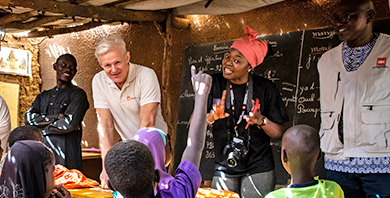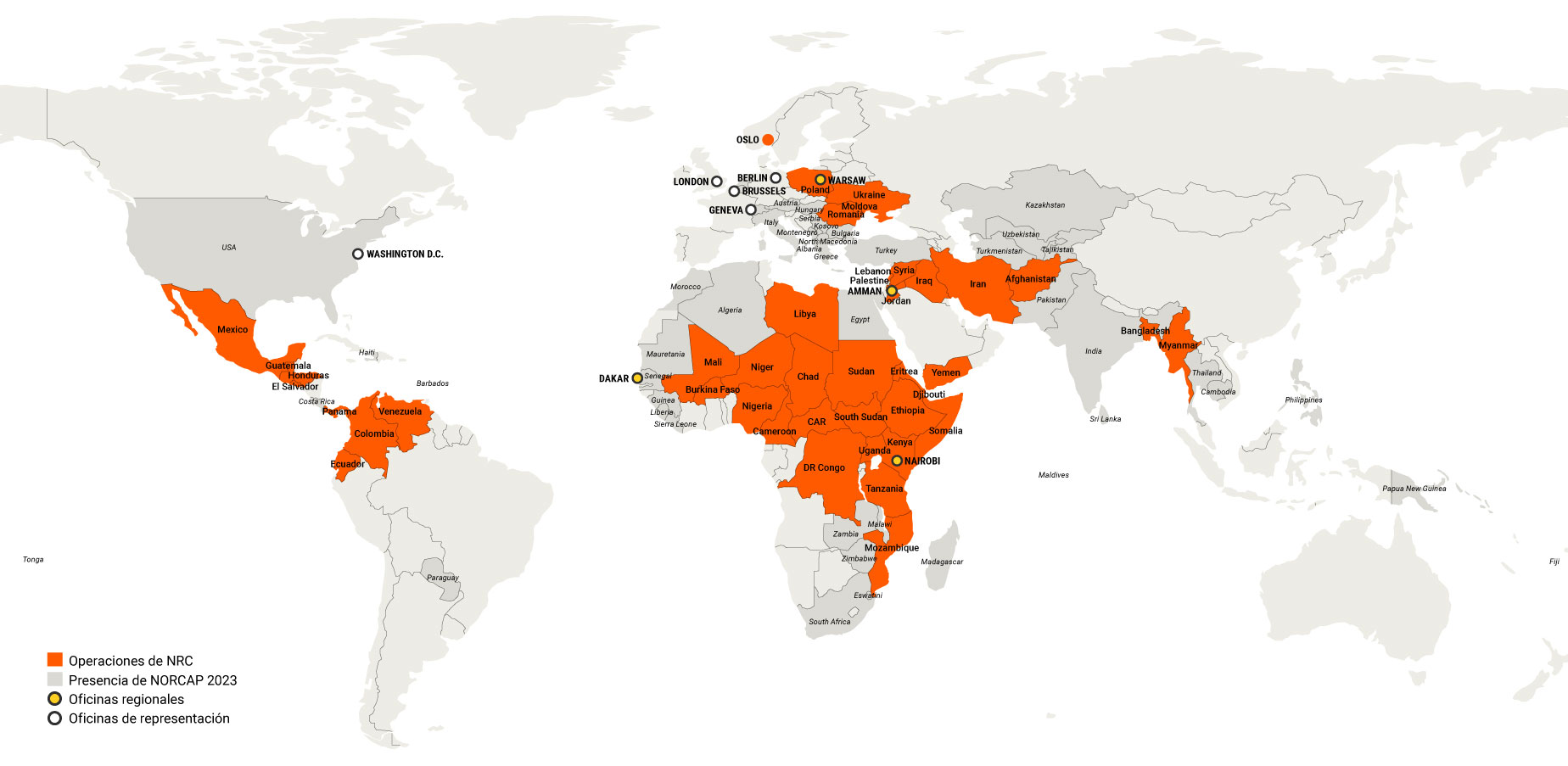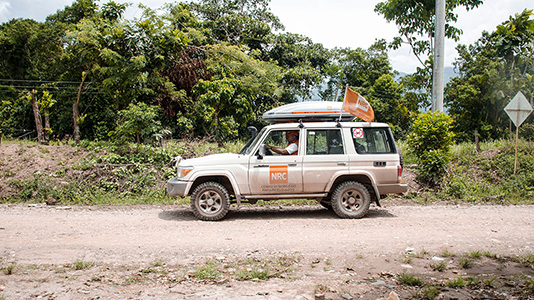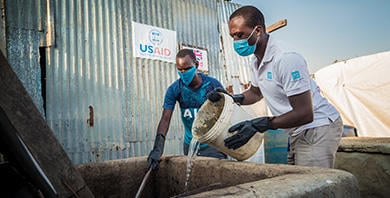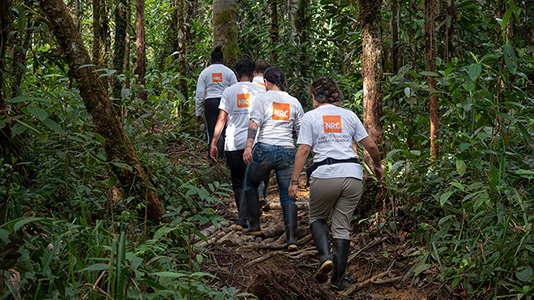
Suleiman built a small one-room shelter for his family using the rubble of his house, which was bombed in August 2014. “This was the only solution for us. Life is getting even more unbearable. We are hoping for one thing: reconstruction. But honestly, I don’t know if I should keep hoping or not.” Photo: Anas al Baba/Oxfam
The international community must urgently change its approach to Gaza and deliver on promises of reconstruction, 46 agencies said today in a new report on the lack of progress since last year’s conflict.
Six months since donors pledged $3.5 billion towards Gaza’s recovery, many people are worse off and not a single one of the 19,000 destroyed homes has been rebuilt. 100,000 people are still homeless and many are living in makeshift camps or schools.
The report, “Charting a New Course: Overcoming the stalemate in Gaza,” warns that further conflict is inevitable -and with it the cycle of destruction and donor-funded reconstruction- unless world leaders implement a new approach that addresses the underlying causes of the conflict. Donors must insist on a permanent ceasefire, accountability of all parties for ongoing violations of international law, and an end to the Israeli blockade that seals in 1.8 million Palestinians in Gaza and keeps them separated from the West Bank. Rather than challenging the blockade, the report found that most donors are accepting ways to work around it.
Winnie Byanyima, Executive Director of Oxfam, said: “The promising speeches at the donor conference have turned into empty words. There has been little rebuilding, no permanent ceasefire agreement and no plan to end the blockade. The international community is walking with eyes wide open into the next avoidable conflict, by upholding the status quo they themselves said must change.”
William Bell of Christian Aid said: “We must ensure that this most recent and most devastating conflict was the last one. There must be consequences for continued violations. By facilitating a culture of impunity, the international community is committing itself to indefinitely picking up the pieces.”
Only 26.8 percent of money pledged by donors six months ago has been released so far. Even when funded, many reconstruction projects have not yet begun due to restrictions on essential material under the blockade. Most of the 81 health clinics and hospitals that were damaged still lack funds for reconstruction, but the few that have funds do not have the material needed to proceed.
Tony Laurance, CEO of MAP UK,said: “The world is shutting its eyes and ears to the people of Gaza when they need it most. Reconstruction cannot happen without funds, but money alone will not be enough. With the blockade in place we are just reconstructing a life of misery, poverty and despair.”
Since the temporary ceasefire, violence against civilians has continued, with more than 400 incidents of Israeli fire into Gaza and four rockets fired from Gaza into Israel. The report calls on all parties to immediately resume long-term ceasefire negotiations. It calls on Israel to end its blockade and policy of separating Gaza from the West Bank, and for Palestinian political actors to reconcile and prioritize reconstruction. It also calls on Egypt to open its border to allow humanitarian relief.
Recently, donors have managed to achieve some small increase in the flow of construction material, but not enough to meet needs and its impact is extremely limited while the blockade remains in place. The report sets out specific recommendations to the international community to break the cycle of conflict and destruction, including ways to:
- Speed up reconstruction, by delivering pledges and insisting on the entry of essential material in line with international law.
- Ensure all parties are held accountable for violations of international law, including by considering obligations under the Arms Trade Treaty (ATT) on weapons known to be used indiscriminately against civilians, and seeking compensation for destroyed aid projects.
- End the blockade and rehabilitate Gaza’s shattered economy. The blockade has reduced Gaza to dependency on aid, with 80 percent of the population receiving international assistance and 63 percent of youth unemployed. Exports from Gaza are at less than two percent of pre-blockade levels with the movement of people and goods between Gaza and the West Bank practically non-existent.
- Support the development of a unified Palestinian government. Palestinian leadership on reconstruction has at times been weak and uncoordinated and is further complicated due to Israeli restrictions on government officials’ travel. Keeping Gaza separated from the West Bank has entrenched the already problematic split between Fatah and Hamas, with enormous negative impact on the delivery of aid and services in Gaza.


